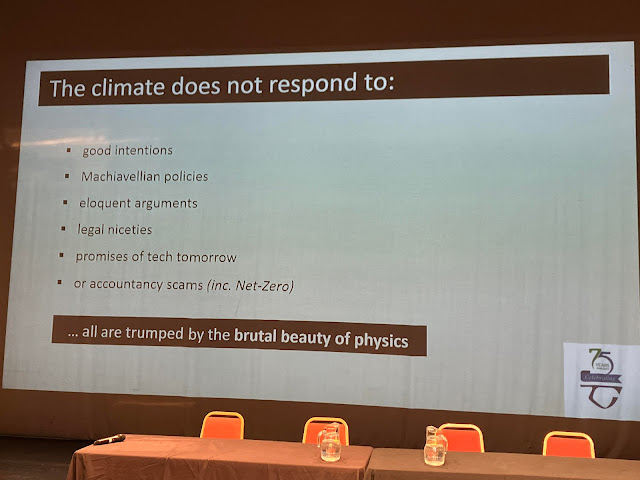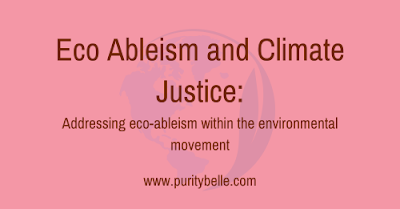The Mary Robinson Climate Conference - A Round Up And Reflections
Honestly, I don't know if my words here will adequately describe my experience at the Mary Robinson Climate Conference but I will do my best to convey some of the highlights and a sense of what it was about. I'm also speaking of course from my own personal perspective and others may have different views. Firstly, having been to a few climate conferences recently, this one felt different. I can't speak to the intentions of the organisers but in terms of speakers and events, it felt inclusive in a way that encompassed the many different strands of climate action. By having a range of speakers from different sectors, including activists, NGOs, academics and business, it offered many perspectives and learnings. It did not shy away from many of the difficult truths surrounding the climate crisis and I will go on to speak about this more, but it was substantially different from events where the narrative is one of complacency that gives the utterly false impression that we are doing reasonably well in tackling climate change.
On the first day we heard from Mary Robinson who was inspiring and I'm in awe of her tireless commitment to human rights and climate justice. We then heard from Prof. Peter Thorne, Manuel Salazar of Extinction Rebellion, Dr. Murray Hitzman, Ambassador Akhilesh, Oisin Coughlan of Friends of the Earth and Dr. Mark Emmerson. I enjoyed listening to all of the speakers and the content highlighted the connectivity between all the complex strands of climate change, and how all the strands brought together into one whole create a devastating impact for humanity. I don't want to single out any particular speaker but one significant moment was when Oisín Coughlan began his speech with the words 'I'm scared'. Those two words reflected the mood of the room and this was another way in which the conference differed from other dialogues on climate. There was a tangible sense of emotion in the room that for me, felt deeply poignant. It was the first time I have been in this kind of space where there was a deep human acknowledgment of all that we have lost and of all that we have yet to lose. It was almost a sense of mourning - yet coupled with determination to fight. Not a sense of giving up, but a leaning into grief.
I attended a session in the afternoon called 'Mind the gap: Women in the Green World of Work' - this session looked at climate and work, and the risk of deepening gender inequality in future transitions to a safer world. We can't speak about climate change without acknowledging the deep systems inequalities that have both contributed to climate change, and that will be exacerbated by it. Women across the globe are currently experiencing climate impacts in a multitude of ways and traditional gender roles often place women as the care-givers and nurterers, the food providers and the organisers. Gaps in responsibilty, economic disadvantage and the frequent discounting of the voices of women, create a disproportionate burden on women. This session also highlighted the fact that in our wealthier nations, the fastest growing and highest paid jobs will be in male dominated sectors and that gender bias leads to underestimation of the capabilities and skills that women have.
The above ties into the theme of climate justice which was raised throughout the programme, and the need, in Ireland, to widen the focus of Just Transition, which tends to centre on job loss in specific industries or areas, to a much wider umbrella of social inequalities. Interestingly, I recently completed a short online course on climate and disability which is available here - Climate and Disability this course is just 30 minutes and well worth doing, it shows through stories and facts how climate events can directly affect disabled people in an awful way.
Day two had another great lineup of speakers. Eamon Ryan spoke first, then we heard from Dr. Kevin Anderson, Adele Mealy of Creative Ireland, Dr. Raymond Flynn, Saoirse Exton, Dr. Eimear Cotter, Kieran Harrahill from TASC and Dr. Cathy Burke. I am going to mention two speakers in particular, who, for me, were outstanding. Dr. Kevin Anderson highlighted the enormous gap we have in Ireland between emissions targets and actual reductions of same. I tweeted about the relief I felt to hear the harsh reality of inaction spoken about so clearly - I feel that the constant dancing around this reality in common narratives is an incredibly damaging delay tactic, which benefits only the few.
Saoirse Exton gave an outstanding speech, talking again about inaction and the sense of anger that young people are feeling, as well as the incompatibility of our current economic system with a sustainable future. This speech felt very emotional for me - as a parent and grandparent, I feel a deep shame at the legacy we are offering future generations. I should mention also, that there was a protest by young people during Minister Ryan's address. I fully supported their actions and I was glad that they were given the space to have their voices heard.
There was so much more but it would be way too lengthy to write of all the individual contributions - I am hoping that the plenary sessions will be available online at some point, as there were film crews present. I took away a lot from this conference, and particularly encouraging were the numerous references to neo-liberal capitalism, colonialism and the systems we are situated in, which create massive inequity and ecological damage. If we are avoiding the topic of systems change in climate discussions, then we are fundamentally contributing to the problem. We are so far past sticking plaster measures - particularly those that focus on small individual actions in the absence of any reference to the fossil fuel monopolies and the billions they spend on lobbying and climate misinformation.
I did have a small criticism though - the disposable cups and lack of recycling bins was a shame because I feel like a lot of waste was generated!
On a personal note, I really liked Ballina, it had a lovely relaxed feel to it and the staff in the Diamond Coast Hotel where I stayed were really helpful and nice.







